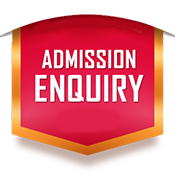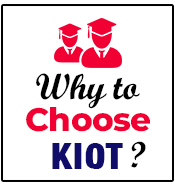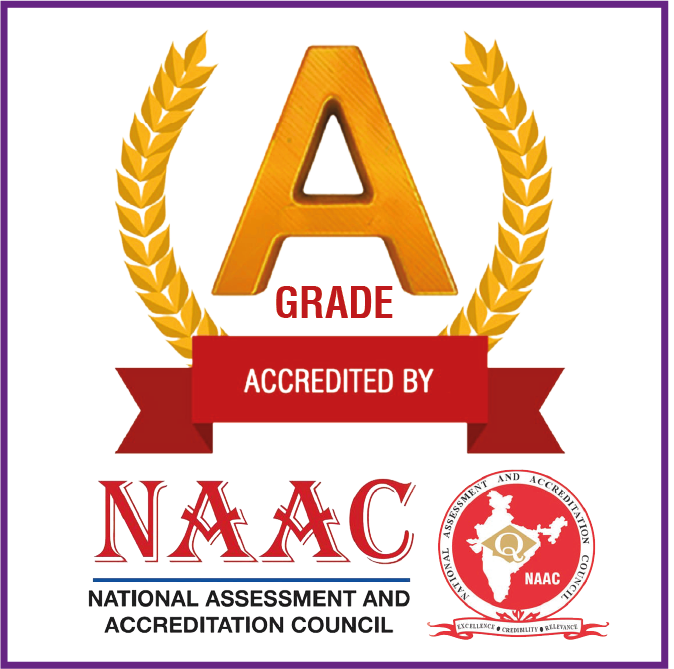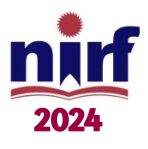| 1. Preamble |
|---|
| We the faculty members and Research scholars of Knowledge Institute of Technology, Salem, hold that our profession as scholars entails an unqualified commitment to the pursuit of truth, dedicated to the promotion of the public good, and a sustained interest in mentoring students and fellow Researchers. We uphold the vision and mission of the institution and to promote the interests of greater community along with our efforts to maintain the ideals of scholarly integrity and academic freedom. To support our drive to maintain standards of research integrity of the institution is compliment with the agreement to support research integrity. |
| 2. Academic Freedom, Integrity and Responsibility |
| Academic freedom is the freedom to teach study and pursue knowledge and research without unreasonable interference or restriction from law, institutional regulations. Its basic elements include the freedom of scholars to inquire into any subject that evokes intellectual concern, to present findings, to publish data and conclusions without control or restriction and to teach in the manner they consider professionally appropriate. |
| (i) Academic integrity requires that academic research follows elevated professional standards, including appropriate research design and frameworks, adheres to high levels of research ethics and abides by the requirements set out by professional and regulatory research guidance and research ethics frameworks issued in appropriate areas by the regulatory bodies like UGC, AICTE, Anna University and others |
| (ii) Academic integrity is defined in terms of the commitment to the values of honesty, trust, fairness, respect, responsibility, legality and dissemination. |
| Honesty: An academic community should advance the quest for truth, knowledge, scholarship and understanding by requiring intellectual and personal honesty in learning, teaching and research. |
| Trust: An academic community should foster a climate of mutual trust to encourage the free exchange of ideas and enable all to reach their highest potential. |
| Fairness: An academic community should seek to ensure fairness in institutional standards, practices and procedures as well as fairness in interactions between members of the community. |
| Respect: An academic community should promote respect among students, staff and faculty: respect for self, for others, for scholarship and research, for the educational process and intellectual heritage, with any discrimination to gender, caste, race and religion. |
| Responsibility: An academic community should uphold high standards of conduct in learning, teaching and research by requiring shared responsibility for promoting academic integrity among all members of the community. |
| Legality: An academic community should observe valid legal norms related to the conduct and publication of research particularly in relations to copyright, the intellectual property rights of third parties, the terms and conditions regulating access to research resources and the laws of the state and country. |
| Communication: |
| An academic community should seek to make the results of its research as widely and as freely available as possible. |
| 3. Institutional Responsibilities |
| The College Governing Council, Principal, Heads of Departments, Research Supervisors, Librarian, together with the faculty members, are responsible for promoting and endorsing a transparent academic environment conducive to the application of the high professional and ethical practice for academic research. |
| The Heads of Departments and Professors are expected to create and sustain a climate of mutual co-operation that facilitates the open exchange of ideas and the development of academics and research skills. They are also expected to ensure the provision of appropriate supervision and direction for researchers, in accordance with the nature of the individual academic discipline and associated mode of research. The Knowledge Institute of Technology (KIOT) is committed to the provision of appropriate direction of research and supervision for researchers. Supervisors are expected to adhere to the Code of Practice for Doctoral Supervision of the affiliating university, which delineates the supervisory relationship, the assessment of research progress, and the procedures to resolve problems in the supervisory relationship. |
| 4. Training |
| The Academic Departments should ensure that all researchers undertake appropriate training in research design, methodology, regulatory, equipment use, confidentiality, data management, record keeping, data protection and publication, the appropriate use of licensed research resources and respect for the intellectual property rights of third parties. The Institute is also committed to preparing its administrative and support staff involved in record keeping and expects them to fully respect the principles and rules of the Code of Ethics in academic research. |
| 5. Publication Practice and Authorship, Notification, Archiving and Depositing Copies of Research Publications with the Institutional Repository (IR) |
| KIOT encourages the publication and dissemination of results of high quality research. It also expects that researchers will engage in the process of publishing and dissemination of their research work correctly and with an awareness of the consequences of any such dissemination in the wider media. Results should be published in a form appropriate to the academic discipline. The Institute requires that all individuals listed as authors accept responsibility for the contents of their publication and can identify their contribution to it. Authors should have participated sufficiently in the research to take public responsibility for the content. The Anna university has given access to plagiarism check software "Urkund" for its Recognized Research Supervisors. All the Ph.D theses and research articles related to Ph.D degree are checked for Plagiarism at https://www.urkund.com/ and then processed for degree. |
| 6. Misconduct in Academic Research |
| Misconduct in academic research implies (and is not limited to) fabrication, falsification, plagiarism or deception in proposing, carrying out or reporting results of research and deliberate, dangerous or negligent deviations from accepted practice in carrying out research. It includes failure to follow an agreed protocol if and when this failure results in unreasonable risk or harm to persons, the environment, and when it facilitates misconduct in research by collusion in, or concealment of, such actions by others. Misconduct also includes any plan or attempt to do any of these things. It does not include honest error or honest differences in interpretation or judgment in evaluating research methods or results, or misconduct unrelated to research processes. |
| Misconduct includes (and is not limited to) the following activities: |
| Plagiarism: The deliberate copying of ideas, text, data or other work (or any combination thereof) without due permission and acknowledgement. |
| Piracy: The deliberate exploitation of ideas from others without proper acknowledgement |
| Abuse of Intellectual Property Rights : Failure to observe legal norms regarding copyright and the moral rights of authors. |
| Abuse of Research Resources: Failure to observe the terms and conditions of institutionally licensed research resources. |
| Defamation: |
| Failure to observe relevant legal norms governing libel and slander. |
| Misinterpretation: The deliberate attempt to represent falsely or unfairly the ideas or work of others, whether or not for personal gain or enhancement. |
| Personation : |
| The situation where someone other than the person who has submitted any academic work has prepared (parts of) the work. |
| Fabrication and Fraud: The falsification or invention of qualifications, data, information or citations in any formal academic exercise. |
| Sabotage: |
| Acting to prevent others from completing their work. This includes stealing or cutting pages out of library books or otherwise damaging them; or willfully disrupting the experiments of others; or endangering institutional access to licensed research resources by willfully failing to observe their terms and conditions. |
| Professorial misconduct: Professorial acts those are arbitrary, biased or exploitative. Denying access to information or material: To deny others access arbitrarily to scholarly resources or to deliberately and groundlessly impede their progress. |
| Misconduct in formal examinations: Includes having access, or attempting to gain access during an examination, to any books, memoranda, notes, unauthorized electronic devices or any other material, except such as may have been supplied by the invigilator or authorized by the academic department. It also includes aiding or attempting to aid another candidate or obtaining or attempting to obtain aid from another candidate or any other communication and conversations that could have an impact on the examination results. |
| 7. Identifying Levels of Violations |
| Two levels of violations of good academic practice can be distinguished. |
| Minor Violations: |
| Minor violations may occur because of inexperience or lack of knowledge of the |
| principles of academic integrity and are often characterized by the absence ofdishonest intent on the part of the person committing the violation. They mayresult from: |
| (i). Weak procedures and methods which may jeopardize (expose) the integrity of the research but are not undertaken deliberately or recklessly |
| (ii). Weaknesses which present no major risks to either subjects or policieswhich they may influence |
| On the whole, these minor violations can be seen as failings which may reflectonly poor, rather than unacceptable practices and therefore mainly require furthertraining and development rather than any formal disciplinary action. |
| Major Violations: Major violations are breaches of academic integrity that are more serious in natureor that affect a more significant aspect or portion of the academic work comparedwith minor violations. |
| Key examples are: |
| (i). Deliberate, reckless or grossly negligent conduct which would clearlypose a significant risk in one form or another to the integrity of the research. |
| (ii). Conduct that may pose risks to subjects, the wider community, theenvironment, or to the research reputation of the institution and research in general. |
| Major plagiarism defined as extensive paraphrasing or quoting without proper citation of the source; |
| (i) Presenting an entire text by someone else as own work. |
| (ii) Directly copying a passage of text without citation. |
| (iii) Combining text and ideas from different sources without citation. |
| (iv) Rephrasing someone else’s ideas without citation |
| 8. Procedures for Investigation of Research Misconduct |
| (i) Instigation of proceedings |
| Without bias to the right and duty of Departments to address and assess issues of plagiarism in the course of the regular assessment of a paper presented by a researcher, any person may submit a complaint about academic misconduct to the Principal. Such complaints need to be supported by sufficient evidence. ThePrincipal will decide whether the allegation is serious enough to warrant an investigation by the research Committee. |
| The initiator of the allegation shall be asked to set out in writing the basis of the allegation. |
| The Research Committee may carry out: |
| A preliminary investigation to ascertain whether there is sufficient substance to the allegation as to warrant a more thorough investigation |
| A formal inquiry which may include the consultation or involvement of external experts if needed . |
| (ii) Investigation |
| The investigation will include examination of all relevant documentation, including, but not limited to: relevant research data, research notebooks, computer files, other materials, proposals and publications, correspondence and memoranda, insofar. |
| (iii) Investigation report and recommendations |
| The Research Committee will produce a report stating the procedures under which the formal investigation was conducted; how and, where appropriate, from whom information was obtained; the findings of the committee and the basis for these; a summary of the views of the respondent; and a description of any recommendations made by the committee. |
| The respondent will receive a copy of the investigation report and have anopportunity to comment on it. Comments may be submitted to the researchcommittee and will be attached as an addition to the investigation report. If disciplinary actions are recommended, the Research Committee will communicate to the Principal what action, if any, should be taken asa result of the investigation. Based on the investigation report and recommendations of the Research Committee, the Principal may decide on sanctions. |
| 9. Mechanism for Detecting Plagiarism |
| Plagiarism detection or content similarity detection is the process of locating instances of plagiarism and/or copyright infringement within a research work or document. The following "plagiarism detection tools " available to detect plagiarism in the research documents |
| 1 .https://www.urkund.com/ |
| 2. https://smallseotools.com/plagiarism-checker/ |
| 3. https://www.prepostseo.com/plagiarism- checker |
| 4. http://plagiarisma.net/ |
Code of Ethics for Researchwebadmin2023-03-21T09:46:48+05:30






